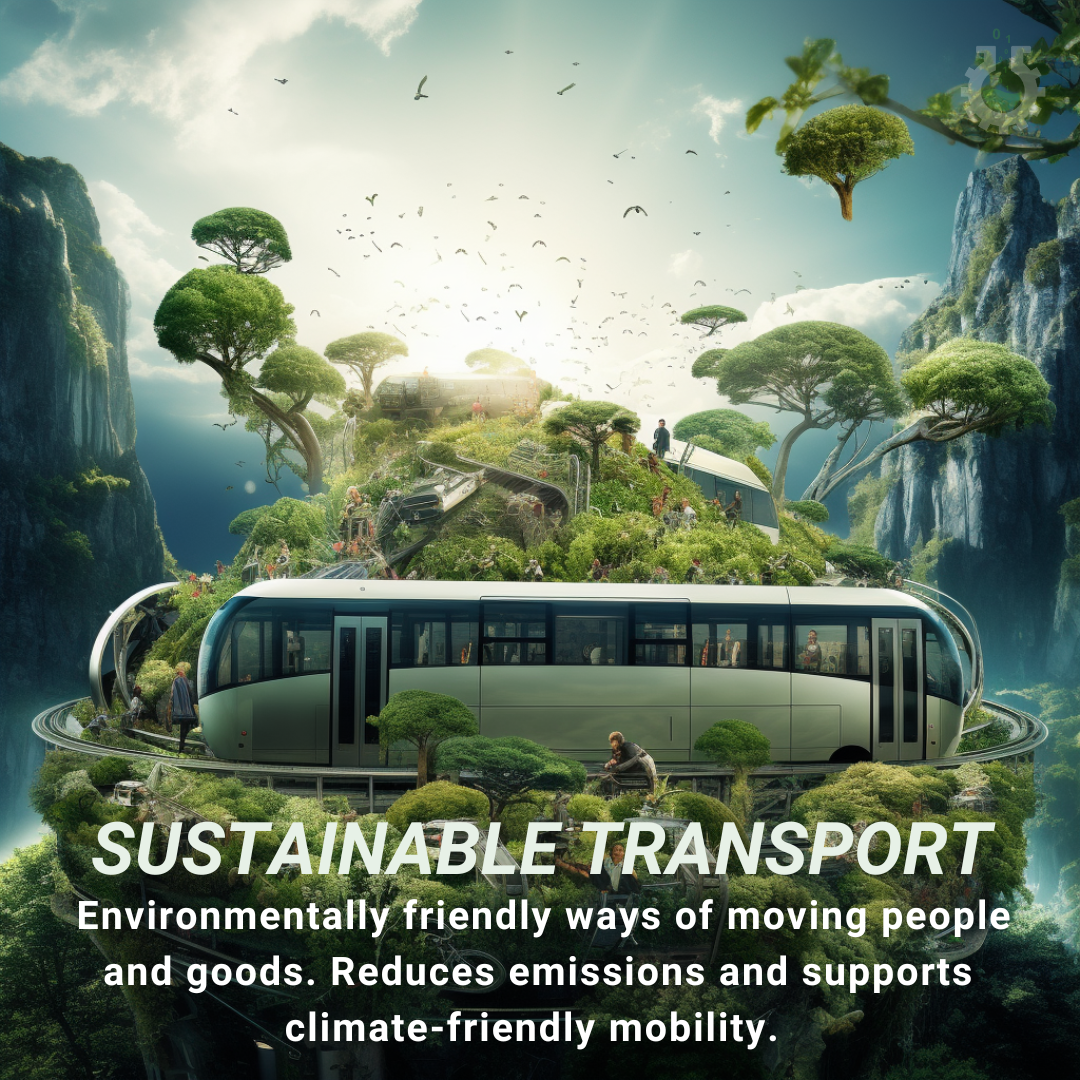November 13, 2023
Climate Change Poster Collection of the Day – Sustainable Transport
Book a Demo
Today’s Climate Change Poster Collection focuses on Sustainable transport, which refers to ways of transportation that are sustainable in terms of their social and environmental impacts. Components for evaluating sustainability include the particular vehicles used for road, water or air transport; the source of energy; and the infrastructure used to accommodate the transport (roads, railways, airways, waterways, canals and terminals). The United Nations (UN) is placing significant emphasis on the issue of climate change, in an effort to boost the capacity of countries worldwide to tackle this pressing global issue. This endeavor involves a collaborative approach, with the United Nations Economic Commission for Europe (UNECE) integrating their work with other international agendas. These include the Millennium Development Goals, the Kyoto Protocol, and the UN Framework Convention on Climate Change, all of which are pivotal to addressing the complexities and impacts of climate change.
One area of particular focus is the transport sector, which is responsible for contributing to 30% of CO2 emissions in developed countries. This alarming statistic underscores the urgent need for action to reduce the global warming effects that stem from this sector. In response, there is a global agreement in place to cut down CO2 emissions from transport by at least 50% by 2050. This drastic reduction will be achieved through the implementation of innovative technologies, the use of sustainable biofuels, enhancements to infrastructure, raising public awareness, and the introduction of legal incentives.
The UNECE Transport Division is playing a pivotal role in these efforts. They are currently working on a project to assess the impact of inland transport on climate change. This project aims to develop a standard tool for monitoring CO2 emissions, which will facilitate our understanding of the sector’s impact and guide subsequent steps towards reduction.
In a recent development, the Sustainable Development Knowledge Platform has been moved to https://sdgs.un.org/ as of December 2022. This platform provides crucial resources and information to support sustainable development efforts, including those aimed at mitigating climate change.
Moreover, the transport sector’s significant consumption of fossil fuels is a key contributor to air pollution and climate-impacting emissions. This makes it crucial to focus on enhancing the sector’s climate resilience. To meet the ambitious goals of the Paris Agreement, sustainable transport solutions are essential. These must incorporate climate change mitigation and adaptation measures, envisioning a low-carbon future marked by technological innovation, inter-modal systems, and a strong commitment to public transport.
In conclusion, the global priority is clear: tackle climate change head-on. The UN, UNECE, and other international bodies are working hard to address this challenge, with the transport sector being one of the key areas of focus. By striving towards sustainable, low-carbon transport solutions, we can make significant strides in our fight against climate change.
Discover an inspiring collection of climate change poster.



